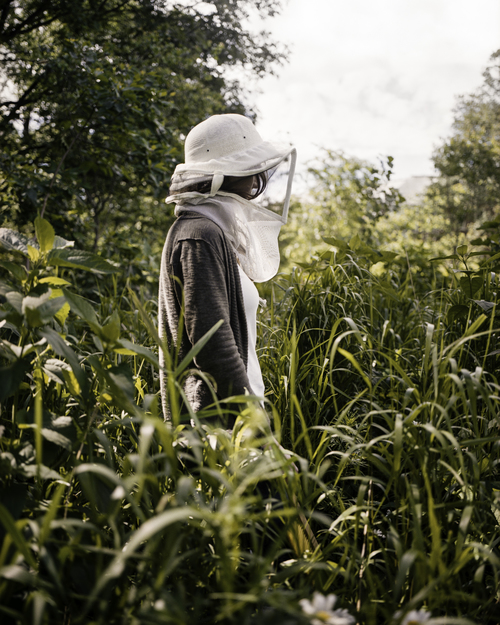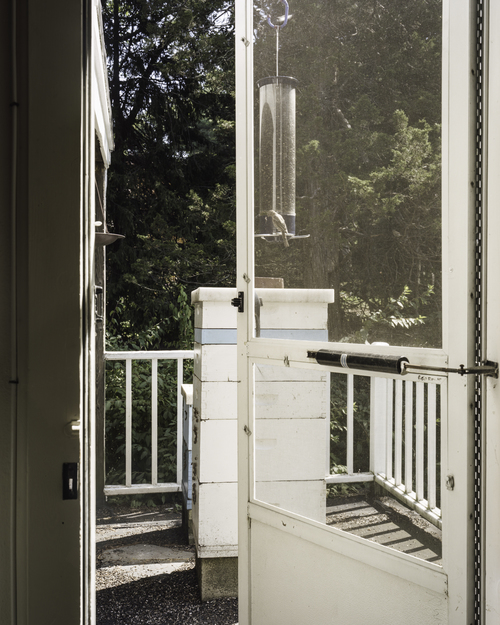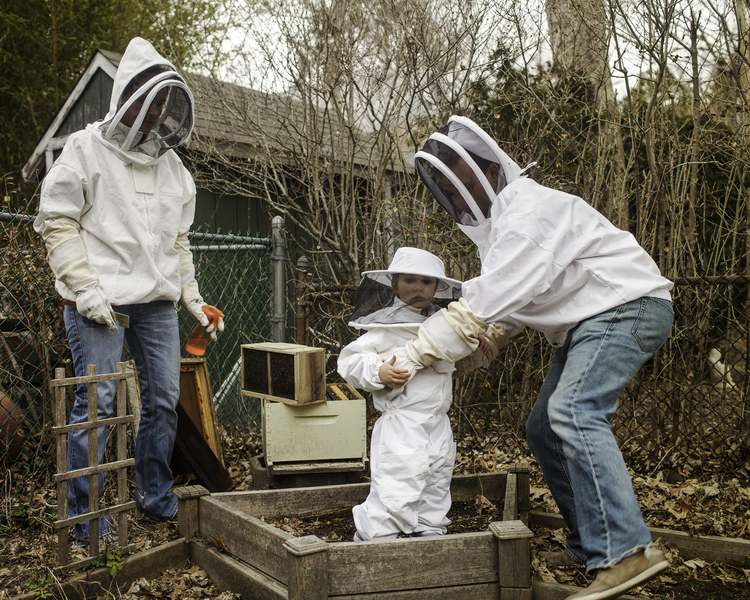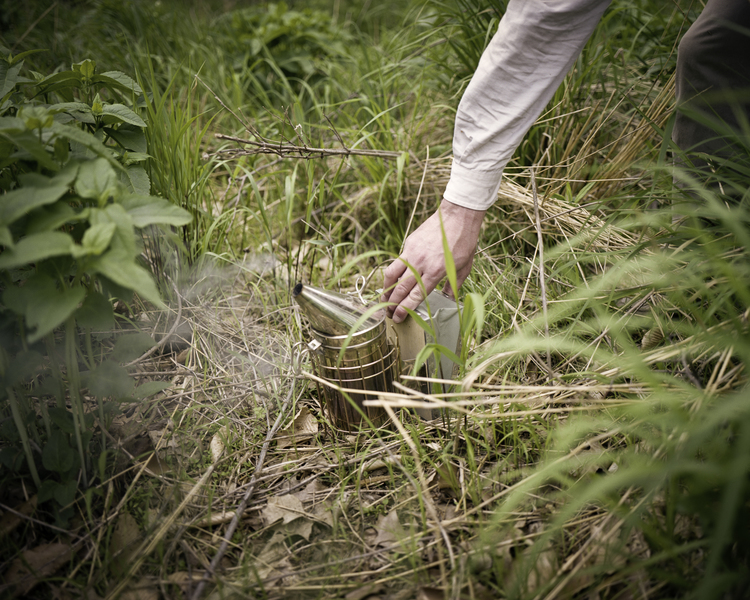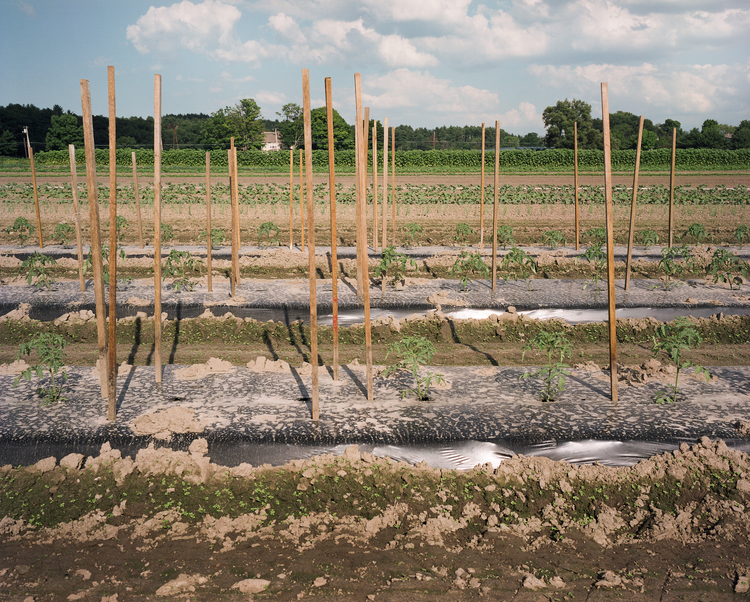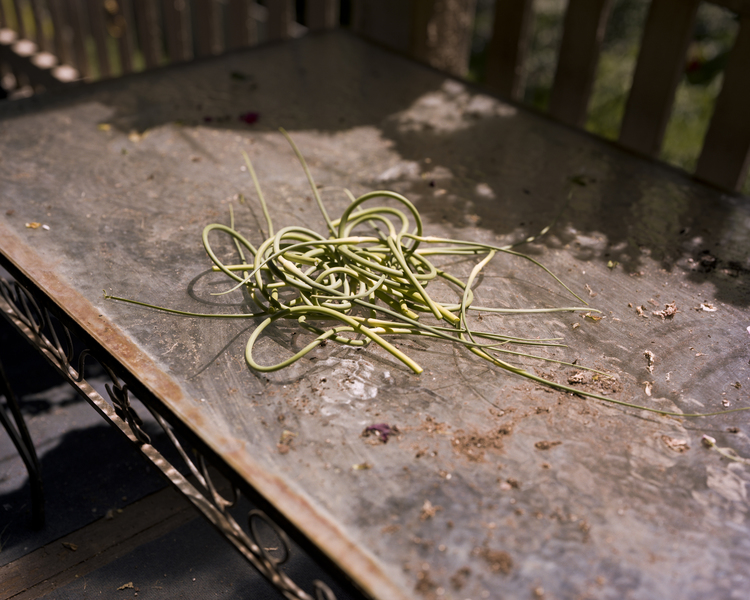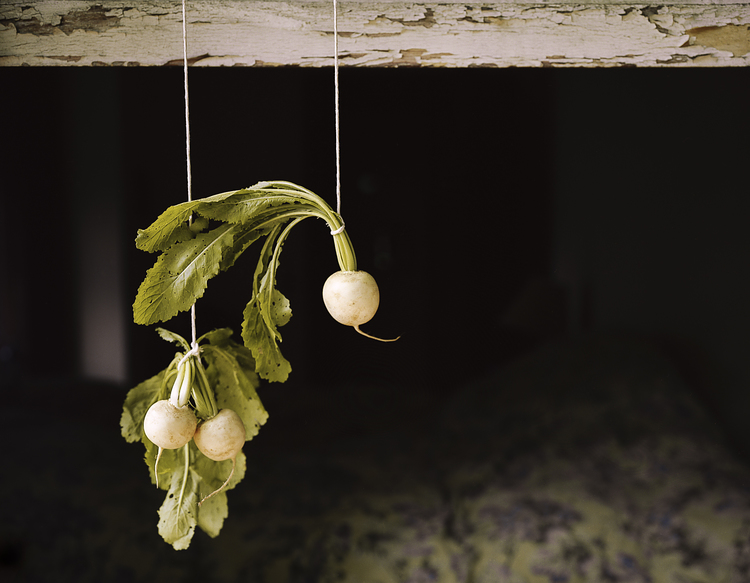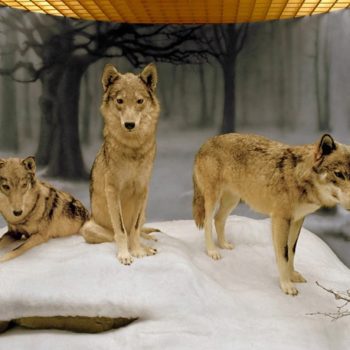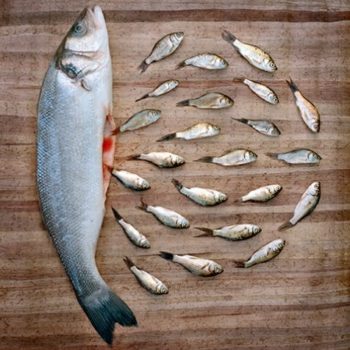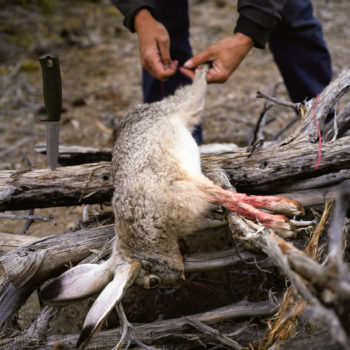I came across some photos by Christine Collins earlier this year and I was really attracted to their quietness and sensitivity. In Collins’ photographs, she explores the sustainable food movement and how it “has reinvigorated our relationship to the landscape.” On this subject, Collins writes, “Local farms have become temples to this movement. These romanticized patches of land are the backdrops for our fantasies about a harmonious participation in the landscape. Vegetables procured from Community Supported Agriculture groups enjoy a privileged status and suggest a better life through a perceived connection to the sources of our food. We seek to make this halcyon vision, which has its cultural and art historical references, congruent with many hours many of us spend inside. The landscape is a concept to be defined.” Collins’ work as a whole speaks about the various ways we try to interact closely with nature in a culture that seems less and less interested in doing so. I love the way the images seem to depict something alien, or scenes from a new, post-apocalyptic world.
More from the artist’s statement on the series, The Keepers: Once limited to more rural areas, the practice of beekeeping participates in our fantasies about a suburban utopia, where we attempt to achieve both a pastoral and domestic landscape. Beekeeping speaks to our aspirations to hold nature in the face of an increasingly disconnected culture. I see these people as facilitators, and I think about how the small action of placing a hive in a backyard has broad implications about our desire for an interconnectedness with nature. In New England, where these pictures are made, the hives will struggle to survive the winter months, creating a cycle of death and rebirth. There is a kind of magic in beekeeping; it is a practice that requires patience and faith. I am making pictures that suggest ceremony, ritual, and mystery of survival.
Collins also has a great series of photos of compost heaps, Reclamation, that reminds me of some images I’ve always loved–John Pfahl’s Compost. Collins photographed the same family’s compost pile over the span of many months. She writes, “[T]he physicality of the pile changes with the seasons and references both cycles of time and the appetites of a family. A centuries’ old agrarian practice reminds us of who we want to be.”
From “The Keepers”
From “Sustain”
Visit artist's site: christinemcollins.com
Posted November 25th, 2015

